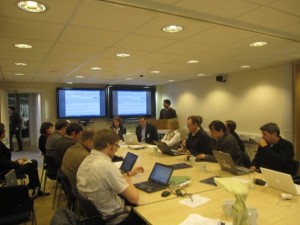[youtube width=”315″ height=”235″]http://www.youtube.com/watch?v=pLsyLEwIFVc[/youtube]
In an effort to regulate the Internet, as part of a package of laws to safeguard national security, the Italian Government has recently proposed an amendment which in practice – if approved – would oblige all Italian ISPs (Internet Service Providers) to block a site (be this a website, a blog or a social media site such as Facebook or Youtube) where material has been posted which is believed to defend or instigate a crime [Bloomberg’s reporting the news here].
This amendment does not talk about merely deleting the material which is believed to be criminal/illegal but about filtering/blocking/blacking out/preventing access to the entire website if the manager of the site did not take down such material. For example, if Facebook did not shut down groups such as the ones which have recently come to the spotlight for praising Mafia bosses, Italian ISPs would be in fact obliged to block access to the whole of Facebook, or be fined (from 50,000 to 250,000 Euros).
The decision of whether such material is in fact illegal would not go to the Courts of Law but would be taken directly by the Minister of the Interior, with no opportunity for trial in front of Magistrates. The amendment has already been approved by the Senate and is waiting to be discussed at the Chamber of Deputies.
Commentators from blogger Beppe Grillo to Italian politician Antonio di Pietro have voiced their protests against this amendment which – if it becomes law – would in fact curtail freedom of expression — and potentially allow the shutting down of thousands of voices on the Web. According to di Pietro [English version here] the amendment is unconstitutional and anti-democratic thereby putting Italy in the same situation of countries such as China and Burma where Internet filtering is widespread. In his blog Beppe Grillo reports an interview with Senator D’Alia [English version here] where the Senator explains how the amendment would in fact work.
A group has been created on Facebook against this amendment – where materials such as editorials and comments can be found – for more information see also: http://www.baoad.it/facebook-censored/.


